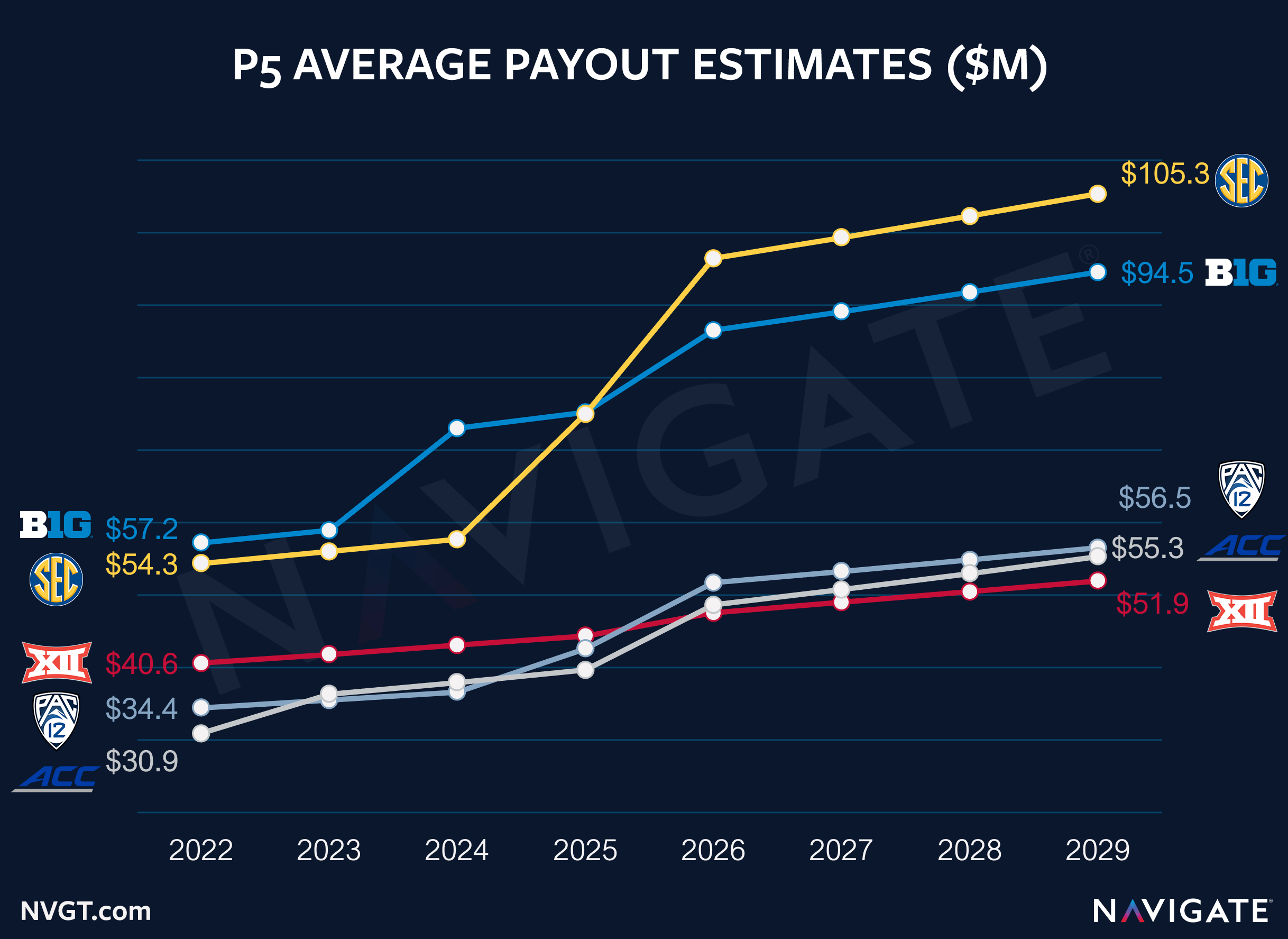Was just looking at the ACC exit fee, and it looks like JUST THE EXIT FEE, is actually 3x the per-school yearly league tv payout - back in 2012 when the increase was agreed to it would have been $52M. So our 2021 payout was basically $35M. But once you pay the exit fee you can leave the following year. So we're actually talking $105M just for the exit fee. Thats just a *no-matter-what* cost.
*When Maryland left they sued and settled on only paying 60% of the 3x payout number that they should have. But they also announced they were leaving like 2 weeks after this increase was approved...
So Exit Fee + GOR = 17 Years of ACC Payouts.
Our Total ESTIMATED value per school over 14 years until GOR ends is estimated to be about $743M total in the ACC ($53.05M/yr for 14 years). That means if the agreement was paid in full - Exit Fee + 14yrGOR, we're talking $847.8M to exit the ACC - which is just ridiculous, when the most any school has EVER paid to leave a conference is like Maryland at ~$30M! Basically we can guarantee that isn't happening. However like I said Maryland settled to pay ~60% of what they technically owed to exit. If we did that same thing, that would mean it would cost us $508.7M to leave the ACC. But Like you said even $300M would be pretty crazy high - That would be us paying each remaining ACC school $23M for us to leave!
In the SEC the current ESTIMATED value per school over the next 14 years is about $1,318M total ($94.2M/yr for 14 years). That means as long as the Exit fee from the ACC were less than $530M, we would be net ahead after 14 years in the switch. So *IF we did that 60% option, Since $508.7M < $530M, this switch would actually technically still work out in our favor. However like you said even a $300M fee to exit would be kinda crazy - 10x the highest ever paid to be exact. So at a $300M exit (an estimated 6-7yr ACC per-school payout value), the gain in joining the SEC would be about $275M or $19.7M/yr over 14yrs. (how much do stadiums cost? Well an extra quarter billions would go a long way...)
The straight up difference in value between being in the SEC over the next 14 years vs the ACC is estimated to be about $41M/yr, Which is just ******* insane. So basically just determine how many years worth is reasonable for us to pay to leave the ACC (IF we ONLY had to pay the exit fee, it'd be 3 years worth), subtract that from 14, and multiply by $41M, and you got our net gain by being in the SEC. And actually it's much better than that because I was using averages, and the payouts are substantially less over the next 3 years than they are estimated to be going forward - so it's MUCH less of a problem to be in the ACC for the next 2-3 years than it would be 10 years from now. That also means it's a much better discount to leave now than later. For instance on an avg payout basis, $300M is 5.66 ACC payout-years. But in reality, if you're basing it on 2021 payout, that is 8.6yrs payout-years worth - which you can argue is 60% of the remaining contract years if you are trying to settle...even though I just showed the actual estimated value at 60% is $500M...
Whatever deal we make, it won't be a lump-sum payment - unless we reach a settlement on doing that for substantially less money. So if we pay yearly, I guess we could always hope the ACC crumbles without us paying much as well lol. Oh and btw remember how we increased our Football yearly budget by $20-30M/yr, and it led to this major ******* change in the program trajectory? Well switching to the SEC would guarantee that extra money in the budget for the next decade - it wouldn't be reliant on the will of the President/BOT...
Our team estimated the rise in average Power 5 conference payouts over the next 8 years. You can see from the chart above that each conference’s average payout is expected […]

nvgt.com



